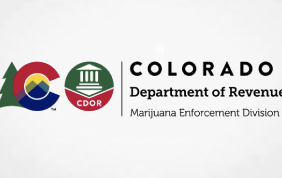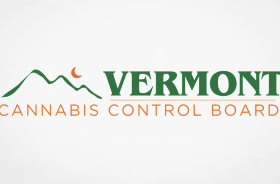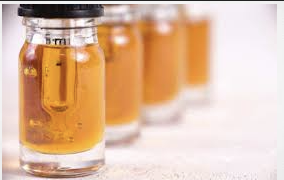Stillwater News Press report…
On June 26, 2018, about 507,000 Oklahomans voted yes on State Question 788, legalizing medical marijuana in the state.
The initiative for the legalization of medical marijuana began as a petition by a group called Oklahomans for Health. The group gathered around 67,000 signatures to have their volunteer-written state question put on the ballot.
When SQ788 passed, voting Oklahomans passed what is being called the most progressive medical marijuana laws in the United States. Once SQ788 passed, Oklahoma’s Medical Marijuana Authority had 60 days to set up a program.
Once set up, by 5 p.m. on Aug. 25, 2018, more than 1,500 applicants applied for the multiple medical marijuana licenses available. By 8 a.m. on Aug. 27, over 2,100 applicants. By Dec. 31, over 36,000 applicants.
Most applicants were applying for a patient license, but applicants could also apply for a temporary license, caregiver license, dispensary license, processor license and commercial grower license.
Currently, having an Oklahoma patient license allows you to possess three ounces of marijuana on your person, six mature marijuana plants, six seedling plants, one ounce of concentrated marijuana, 72 ounces of edible marijuana and eight ounces of marijuana at home. The cost of acquiring a patient license is $100, or $20 if on Medicaid. Oklahoma’s possession limits are 6.5 times felony limit in Colorado.
Oklahoma is also the only state that does not have qualifying conditions for patient licenses.
A caregiver license is for people who take care of homebound patients. This could be an elderly patient or a young child and anyone in between. Caregivers are allowed to possess, grow and buy marijuana for the patients they are taking care of. Caregivers, right now, have no limit on the amount of patients they can take care of. So, if a caregiver is taking care of 10 patients, they could potentially grow up to 120 plants in their home.
Caregivers also do not have to do their own applications. If a patient puts their caregivers’ name down on the application website, that person is then designated as a caregiver and can then possess all the medical marijuana a patient could possess.
Dispensary licenses cost $2,500. The dispensary has to be at least 75 percent owned by Oklahomans who have had residency status for two years.
The processing license is currently the most regulated because it deals with food and food products. The Food Safety Standards Board was created to oversee what happens with processed marijuana when converted into an edible form. It costs $2,500 to obtain this license.
The commercial grower license is also $2,500, which is low compared to Arkansas, which has a $100,000 license fee plus a $500,000 performance bond. There is no limit right now on how much marijuana can be grown.
As of June 3, 129,085 patient licenses, 818 caregiver licenses, 1,479 dispensary licenses, 3,026 grower licenses and 811 processor licenses have been approved. This means that Oklahoma has one dispensary license for every 87 patient licenses, and two growers for every one dispensary.
What’s next?
Because of the way SQ788 was written, disputes with employment and what kind of actions employers can take began to arise.
Per section 6(B) of SQ788 “ Employers may not take action against the holder of a medical marijuana license solely based upon the status of an employee as a medical marijuana license holder or the results of a drug test showing positive for marijuana or its components.” This means patients with a medical marijuana license, even those who work in safety sensitive positions, could avoid the consequences of drug testing for marijuana products.
This also means that, currently, someone could be fired for having marijuana on their person at work, but cannot be fired for being high at work.
On March 14, Gov. Kevin Stitt approved House Bill 2612, also known as the “Unity Bill.” This bill was created to increase some of the restrictions on certain aspects of SQ788 while also clarifying some of its language.
HB2612 clarifies that federal law preempts state medical marijuana programs required to follow federal drug-free workplace guidelines. Employers still may not discriminate against marijuana patients, but may discipline or fire employees who fail drug tests if they are in a safety sensitive position. The bill further states that insurance carriers are not required to cover the cost of medical marijuana.
Previously, in SQ788, property-owner consent was not necessary for growing marijuana. So, if you were renting property you would not need landlord consent to grow on that property. Now, HB2612 will require property-owner consent for homegrow operations, and homegrow operations must not be viewable by a normal person with 20/20 vision.
The bill also requires seed-to-sale inventory tracking, so every commercial business will now have to track their product throughout the system.
HB2612 will allow businesses and property owners the right to prohibit the use of smokable medical marijuana and clarifies that licensees are subject to the same restrictions as tobacco under the “Smoking in Public Places and Indoor Workspaces Act.”
Multiple public health concerns were also addressed in HB2612 including laboratory testing, child safety guidelines and more.
HB2612 is set to take effect on Aug. 29. On March 29, Callum v. Bates was filed by attorney Julie Ezell. This lawsuit is asking the court to hold HB2612 as unconstitutional. As of right now, there has not been any progress on this case.



















